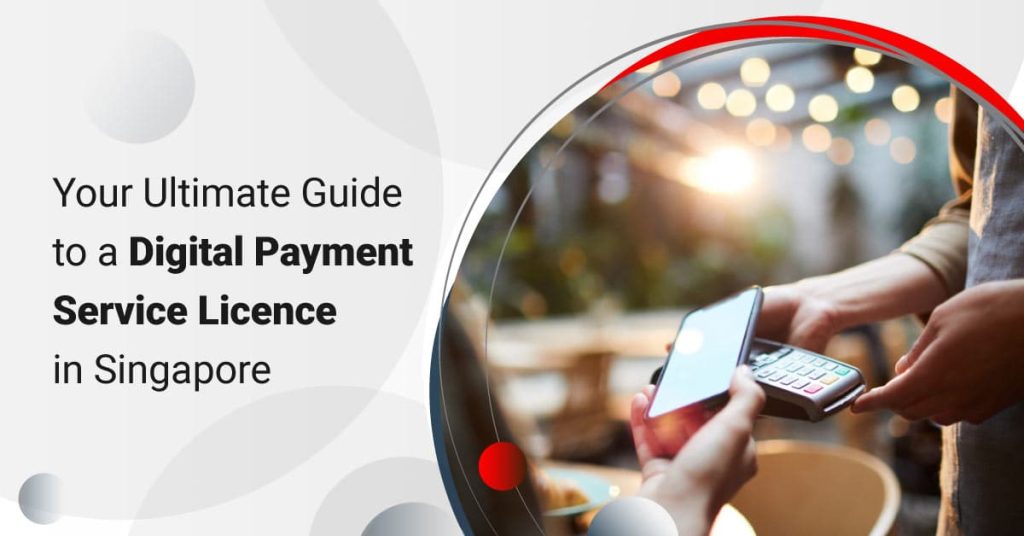 As the world shifts towards a digital economy, businesses are increasingly adopting new technologies to facilitate seamless transactions.
As the world shifts towards a digital economy, businesses are increasingly adopting new technologies to facilitate seamless transactions.
In Singapore, which is a magnet for the fintech sector, the government has implemented a robust regulatory framework to support the growth of digital payment services, which have become prominent over the last few years.
In this article, we explore more about payment licences in Singapore – specifically for digital payment services, their benefits, and how to obtain one for your business.
What is a Digital Payment Service?
A digital payment service, also known as an electronic payment service or e-payment service, is a platform that allows individuals and businesses to transfer money electronically without using cash or cheques.
These services typically utilise digital technology to facilitate transactions through online portals, mobile apps, or other devices, offering a faster and more convenient alternative to traditional payment methods.
Digital payment services can include payments made through debit or credit cards, online bank transfers, mobile wallets, and other digital payment platforms such as PayPal, Google Pay, or Apple Pay.
These services are becoming increasingly popular due to their convenience, speed, and secure transaction protocols.
Some examples of e-payment services in Singapore are:
- PayNow
- Singapore Quick Response Code (SGQR)
- GrabPay
- Apple Pay
- FAST (Fast and Secure Transfers)
- GovWallet
Related Read: 5 Trends Shaping Southeast Asia’s Consumer Payments Landscape »
What is a Payment Service Licence?
The Monetary Authority of Singapore (MAS) introduced the Payment Services Act (PSA) in 2019 to regulate and licence payment service providers, including digital offerings.
The PSA ensures that providers adhere to strict standards to maintain a secure, efficient, and transparent payments ecosystem.
It was designed to promote innovation in digital payments, increase competition in the market and improve cybersecurity measures.
The PSA condensed various payment regulations into a single framework, making it easier for businesses to understand the regulatory requirements in Singapore.
Under the Act, digital payment service providers such as e-wallet providers must obtain a licence before they can start operations in Singapore.
What Are the 2 Applicable Types of Digital Payment Service Licences?
There are 2 types of payment licences in Singapore that apply to digital payment services:
- Standard Payment Institution Licence: For businesses with a payment transaction volume below S$3 million per month, and a daily average e-money float below S$5 million. Can include any combination of these services:
- Money-Changing Services
- Account Issuance Services
- Money Transfer Services
- International Money Transfer Services
- Merchant Acquisition Services
- E-money Issuance Services
- Digital Payment Token Services
- Major Payment Institution Licence: For businesses providing the same services as the Standard Payment Institution Licence, but with a payment transaction volume above S$3 million per month, and a daily average e-money float above S$5 million
The MPI licence is reserved for large-scale digital payment providers that intend to provide account issuance, money transfer, and merchant acquisition services.
On the other hand, the SPI licence is for smaller-scale digital payment providers that provide remittance and merchant acquisition services.
Benefits of Obtaining a Digital Payments Licence in Singapore
What are some advantages of getting a payments licence in Singapore?
Growing Digital Economy
Singapore’s digital economy has grown exponentially in recent years, with the government actively investing in digital infrastructure and promoting e-commerce.
Obtaining a digital payments licence allows businesses to tap into this lucrative market and expand their customer base.
Fostering Innovation
Singapore is known for its supportive ecosystem that encourages innovation in the fintech sector.
Acquiring a digital payments licence enables businesses to develop cutting-edge solutions and leverage the latest technologies, such as blockchain and artificial intelligence.
Regulatory Framework
MAS provides a robust regulatory framework for digital payment service providers, ensuring consumer protection and promoting trust in the industry.
By obtaining a licence, businesses demonstrate their commitment to adhering to these standards, enhancing their credibility among customers and investors.
Attractive Business Environment
Singapore’s business-friendly environment, with its competitive tax regime and well-developed infrastructure, makes it an attractive destination for companies looking to establish a foothold in the digital payments space.
Obtaining a digital payments licence in Singapore offers businesses the opportunity to benefit from this environment and grow their operations.
How to Obtain a Payments Licence in Singapore
To obtain a licence, digital payment providers must meet several stringent regulatory requirements set by the MAS. These include requirements for compliance, security, risk management, and consumer protection.
Digital payment service providers must submit detailed business plans, undergo background checks for their directors and shareholders, and maintain certain levels of liquidity and capital that are specified by the MAS.
Determine the Appropriate Licence Type
Before applying for a digital payments licence, businesses need to determine which type of licence best suits their needs based on their intended services and transaction volumes, as covered earlier.
Find Out How Much Your Required Licence Costs
Understanding the application fee structure and payment methods is crucial when applying for a digital payments licence in Singapore.
Here is a breakdown of the fees associated with each type of licence and how you can make the payment.
| Licence Type | Application Fee |
|---|---|
| Standard Payment Institution | S$1,000, or the sum of the amounts below for the payment services applied for, whichever is higher. |
| Major Payment Institution | S$5,000 |
| Payment Service Applied For | Standard Payment Institution | Major Payment Institution |
|---|---|---|
| Account Issuance Service | S$0 | S$0 |
| Money-Changing Service | S$500 | S$500 |
| Digital Payment Token Service | S$1,000 | S$1,500 |
| Domestic Money Transfer Service | S$1,000 | S$1,500 |
| International Money Transfer Service | S$1,000 | S$1,500 |
| Merchant Acquisition Service | S$1,000 | S$1,500 |
| E-money Issuance Service | S$1,000 | S$1,500 |
| Digital Payment Token Service | S$1,000 | S$1,500 |
Both Standard Payment Institution Licence holders and Major Payment Institution Licence holders must pay an annual fee, depending on the payment services they are licensed to conduct.
For Standard Payment Institution Licence holders, the fee is approximately S$5,000 on average. For Major Payment Institution Licence holders, the fee is on average, approximately S$10,000.
Prepare the Necessary Documents
Applicants must prepare various documents, including a comprehensive business plan, risk management framework, and information on key appointment holders.
For more details on the documentation requirements, refer to the MAS’s page for Application for a Payment Service Provider Licence information page.
Submit Application
Applications must be submitted through the MAS online portal, along with the required documentation and application fees. MAS will then review the application and may request additional information before granting the licence.
The popularity of the Payment Service Provider Licence is high, so expect some additional time in processing.
Comply with Regulatory Requirements
Licenced digital payment providers must comply with various regulatory requirements set by the MAS, such as:
- Implementing robust anti-money laundering (AML) and counter-terrorism financing (CTF) measures
- Maintaining adequate capital
- Submitting periodic reports
For more information on compliance requirements, visit the MAS regulations page.
A Gateway to a World of Benefits
Obtaining a digital payments licence in Singapore offers numerous advantages for businesses, including access to a growing digital economy, a supportive innovation ecosystem, and a robust regulatory framework.
By securing a licence, businesses can enhance their credibility, tap into new markets, and leverage the latest technologies to stay competitive in the rapidly evolving digital payments landscape.
If you’re considering applying for a digital payments licence and would like more information or assistance with the application process, contact us at InCorp.
Our team of experts knows the Singapore landscape fluently and is here to help guide you through the process and ensure your business thrives in Singapore’s digital payments ecosystem.
FAQs
How long does it take to obtain a digital payments licence in Singapore?
- The processing time for a digital payments licence application depends on the complexity of the business and the completeness of the submitted documents. Expect some delays as demand for the licence is high.
Can a foreign company apply for a digital payments licence in Singapore?
- Yes, foreign companies can apply for a digital payments licence in Singapore. However, they may be required to set up a local subsidiary or branch office to comply with the regulatory requirements.
Is it mandatory for digital payment service providers to obtain a licence in Singapore?
- Yes, digital payment service providers operating in Singapore must obtain a licence under the Payment Services Act to ensure compliance with the regulatory framework and maintain the integrity of the digital payments ecosystem.



